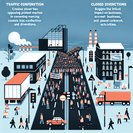
The UK Parliament’s Secondary Legislation Scrutiny Committee has summoned Migration and Citizenship Minister Mike Tapp and senior Home Office officials for an evidence session on 28 October—but the agenda and witness list were published on 27 October, signalling growing concern inside Westminster over the speed and transparency with which immigration rules are being rewritten.
At the heart of the Committee’s inquiry is whether the Home Office is using secondary legislation to make major policy shifts—such as tightening Skilled Worker criteria and suspending the refugee family-reunion route—without adequate impact assessments or parliamentary oversight. Members have criticised the absence of economic analysis on July’s changes that removed social-care jobs from the Skilled Worker route and on the September order that halted family-reunion visas.
During Tuesday’s hearing, peers are expected to press officials on why key stakeholder groups and devolved administrations were not consulted and whether future Statements of Changes will be accompanied by business-impact modelling. Employers’ groups say the July changes have already disrupted hiring in the care, hospitality and logistics sectors; charities warn that the family-reunion suspension risks leaving vulnerable relatives stranded overseas.
The Committee could recommend that future immigration rule changes be channelled through primary legislation or at least be subject to affirmative resolution, forcing a Commons vote. While its reports are advisory, previous scrutiny committee interventions have prompted ministers to withdraw or redraft statutory instruments.
For in-house mobility teams, the session is a reminder that the regulatory landscape may shift again before Christmas. Companies relying on Skilled Worker visas should watch for amendments emerging from the Lords debate and build contingency plans for harder-to-fill roles.
At the heart of the Committee’s inquiry is whether the Home Office is using secondary legislation to make major policy shifts—such as tightening Skilled Worker criteria and suspending the refugee family-reunion route—without adequate impact assessments or parliamentary oversight. Members have criticised the absence of economic analysis on July’s changes that removed social-care jobs from the Skilled Worker route and on the September order that halted family-reunion visas.
During Tuesday’s hearing, peers are expected to press officials on why key stakeholder groups and devolved administrations were not consulted and whether future Statements of Changes will be accompanied by business-impact modelling. Employers’ groups say the July changes have already disrupted hiring in the care, hospitality and logistics sectors; charities warn that the family-reunion suspension risks leaving vulnerable relatives stranded overseas.
The Committee could recommend that future immigration rule changes be channelled through primary legislation or at least be subject to affirmative resolution, forcing a Commons vote. While its reports are advisory, previous scrutiny committee interventions have prompted ministers to withdraw or redraft statutory instruments.
For in-house mobility teams, the session is a reminder that the regulatory landscape may shift again before Christmas. Companies relying on Skilled Worker visas should watch for amendments emerging from the Lords debate and build contingency plans for harder-to-fill roles.







